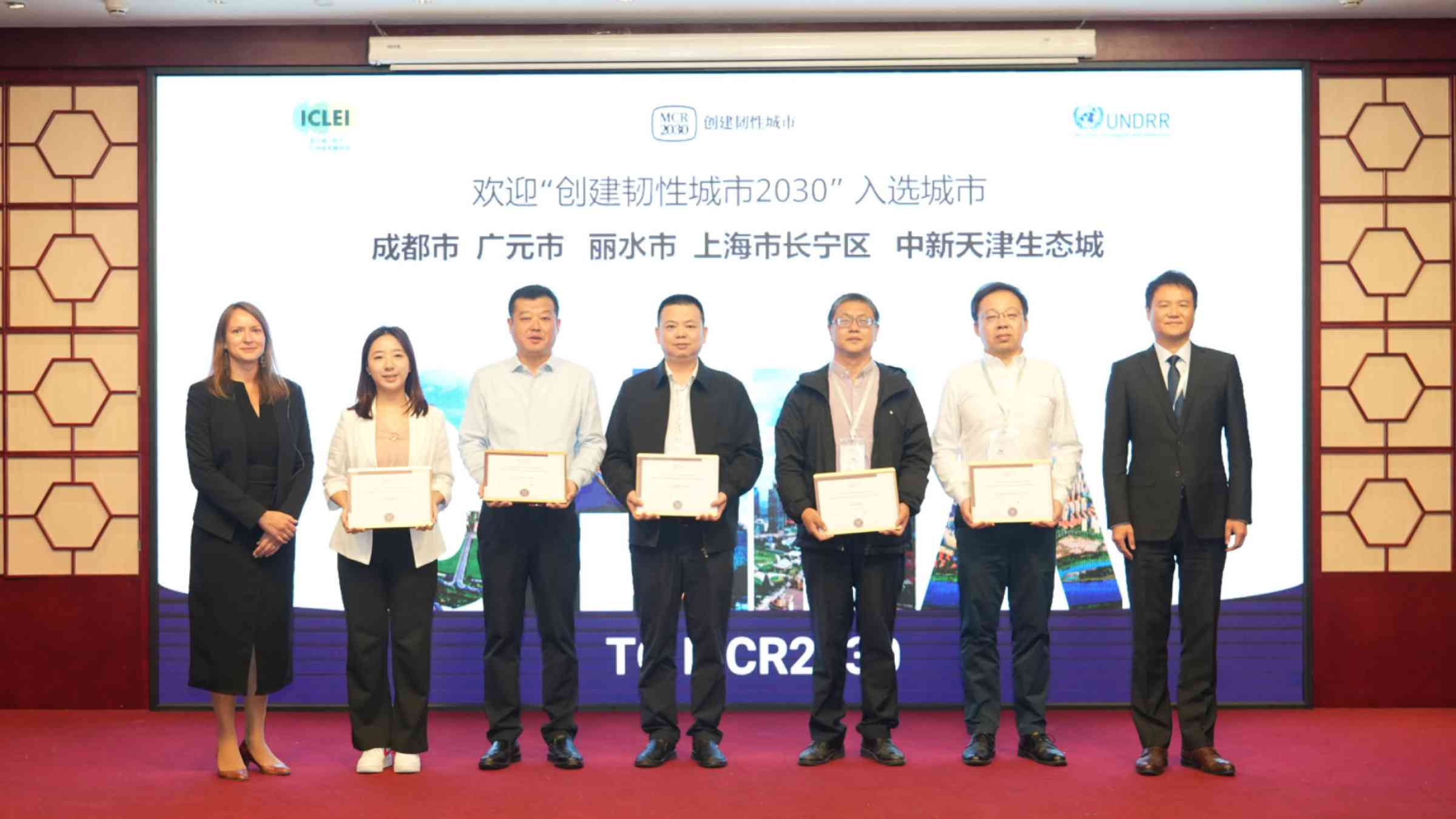Chinese cities commit to reduce disaster risk

Five Chinese cities – with a combined population of more than 25 million – have committed to prioritize efforts to reduce disaster risk.
Chengdu, Guangyuan, Lishui, Shanghai Changning District, and Tianjin Eco-City have joined Making Cities Resilient 2030 (MCR2030), providing a big boost to the global partnership, which is focused on scaling up ambition and action on risk reduction.
Ms. Kun Gao, Director, Multilateral Cooperation Division, Department of International Cooperation and Rescue, Ministry of Emergency Management of China said: ‘MCR2030 is a very important initiative under the Sendai Framework for Disaster Risk Reduction. Disasters have a significant impact on development, so we need to build sustainable and resilient cities. This is our top priority.’
The co-chairs of MCR2030 – the United Nations Office for Disaster Risk Reduction (UNDRR) and Local Governments for Sustainability (ICLEI) - welcomed the five cities to the worldwide network with the announcement of their joining MCR2030 at the Resilient Cities China Symposium in Kunming, China.
Regional Director of ICLEI East Asia and China Representative Mr. Shu Zhu said: ‘Without resilience in cities, sustainability cannot be achieved.’ Head of UNDRR’s Office for Northeast Asia and Global Education and Training Institute
Mr. Sanjaya Bhatia said: ‘MCR2030 is a value added for cities around the world for many reasons, from enabling exchange of best practices to facilitating access to tools and partners across sectors to support disaster resilience.’
The Symposium, organized by ICLEI in conjunction with the Urban Biodiversity International Forum, explored biodiversity conservation and climate change adaptation efforts in cities across China as well as the broader MCR2030 network.
Almost 80 experts on ecosystem management, urban sustainability, and green finance from local governments in China and international partners put forward practical recommendations to scale up action on disaster and climate risk before the window of opportunity closes. A total of 250 participants in-person and online took part.
Deputy Director of Kunming Municipal Ecology and Environment Bureau Mr. Jun Chen noted the relevance of the event in the context of his city’s commitment to sustainable development as he welcomed participants. ‘Kunming puts green development first,’ he said.
Immediately after the Symposium, a capacity building workshop convened decision-makers and sector experts from Beijing, Shenzhen, and China-Singapore Tianjin Eco-City to use the Disaster Resilience Scorecard for Cities to self-assess gaps and capacities in their respective municipalities.
The two events were organized as part of the ICLEI-led project ‘Making Cities Resilient 2030: Strengthening Local Disaster Resilience in China’, funded by UNDRR. The initiative supports local governments to reduce their disaster and climate risk through stronger engagement in MCR2030.

